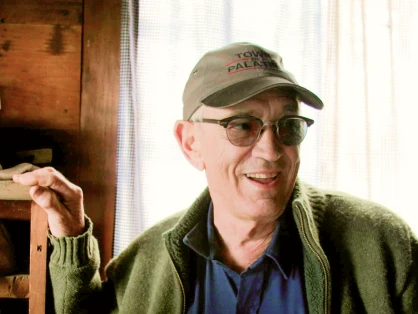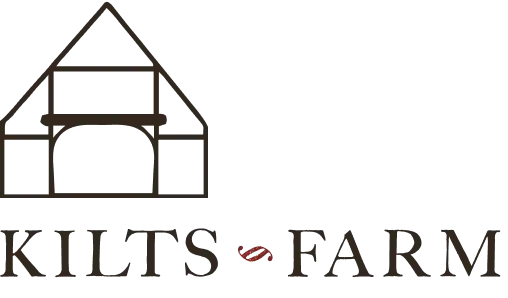Are those real hoof beats that I hear when I first awake this morning at a place called Stone Arabia? Or could the come from a dream about hoof beats from my childhood memory. A dream that is not quite ready to end. Could the come from my imagination that could encompass all of our area’s history? Before I let my imagination drift backward I must deal with the here and now. Yes – they are real hoof beats I hear. They are made by the horses hitched to the Amish milk wagon that is delivering cans of milk to the receiving plant just east of me. Another buggy heads for town for a task unknown to me. Could it be to get medicine for a sick child? Could they be headed for an Amish auction or a house or barn raising? How I know these hoof beats are quite real. A realization I come to more quickly when the phone rings. It is my wheelwright friend, Emanuel. He has heard more hoof beats than I ever have or ever will. The phone call brought to the forefront the fact that hoof beats were fast fading from our middle Mohawk Valley until our Amish neighbors first arrived in 1986.
Now I look backward. I must review fading hoof beats even if they come from some two centuries ago. Some of us here trace our ancestry to the Palatine migration from along the Rhine River in Germany during the dawning years of the 18th century. Some of them found their way to Stone Arabia via Schoharie. They were poor displaced people looking for their promised land. The trails and paths they were to travel were faint sometimes only those used y Native Americans who were here long before these Europeans came their way. Most came on foot carrying their meager possessions on their backs. Did they have any beast of burden? Possibly a horse to help break the fertile soil of Stone Arabia for the first time? If they did their hoof beats have faded into oblivion. Are the plodding, muffled steps of the faithful animals that drew the timber from the wilderness that surrounded them to build the great timber barns entirely faded from our memory? Can we feel even to a tiny degree the warmth from the fireplaces that were the very survival of these early settlers? Can we hear the hoof beats of the beasts who drew the wood to keep these cavernous fireplaces burning? Some fifty years after these Palatines arrived destruction came to the Stone Arabia settlement. If we listen intently we might hear the hoof beats of horses that carried riders who would warn the Stone Arabia people of coming disaster as an invading army approached in the fall of 1780. Can we hear the hoof beats of Colonel John Brown’s small black horse as it carried its rider nearer toward the site in a neighboring field where Colonel Brown and some 40 of his followers would give their lives in an effort to protect the Stone Arabia settlement.
As we go forward toward the present, hoof beats still sounded for many years. Can we remember the mounted officers who drilled their military regiment as required by law on into the 19th Century? Some of those were cavalry or light horse artillery regiments. Can we faintly hear the hoof beats of the beasts who pulled the covered wagons through our beautiful valley on their trek ever westward?
As the memories of the hoof beats of long ago drifted from my mind those of the morning also faded with them. I asked myself if there was any, even vague resemblance of the effect of hoof beats on the citizens of yesterday and anything in the 21st century. Then it came to me that all through the years relatives, friends and neighbors called on one another in time of need. All of us have been awakened from a sound sleep late at night by the ringing of the telephone. Usually, but fortunately not always, it will be bad news. The rapid hoof beats late in the night of the early days often accomplished much the same as the telephone does today. It is the story of changing communications.
Someplace sandwiched between the hoof beats of ancient times and those produced by the horses of my Amish neighbors are those of my own younger years. My mother, Margaret Garlock Barshied (1906 – 1987) had a lifetime love of horses. As I came onto the county scene in 1930 mother still had a horse named “Jenny”. She was over 20 years old then and survived at least for another twelve or fourteen years. Jenny had been ridden or driven to school when mother was a girl. Doubtless that old mare was the first one I had ever been placed upon. I probably was too young to know what was happening. When I grew old enough I rode Jenny. She had a remarkable swing gait I believe would have been called a rack which made for a smooth ride. When I was old enough to ride mother bought another horse for herself called “Nellie”. I still harbor fond memories of those two horses. When I was fourteen mother gave me a pinto which in size was somewhere between a pony and a horse. Her name was “Junie”. She had never been away from other horses and always gave me a hard time if she was taken out alone. If she was allowed to put her head between her legs she really bucked. I will end my remarks about Junie by again making the statement that if you ever had a horse like that one you had no desire to have another, and I never did. Skip and Junie
The first teams of horses I remember were on my grandfather and grandmother Barshied’s farm at Seebers Lane. My aunt Carmeta said: “your grandfather liked his horses”. He never drove a car or tractor so horses were all important to him. Once when I was quite small he took me on his lap when he mowed hay on the field across from the house. Having me get a small rabbit out of the way of the cutting bar made a lifelong impression on me. A team of draft horses were on Ben Nellis’ farms when I came there in 1948. Soon tractors took the place of the teams of horses.
Sometimes when writing a little story things get out of context. That is the case with me now for I forgot two animals from my younger years. My wife, Ethel’s old buckskin horse “Buck” was very special to her. I do not know when “Buck” came into Ethel’s life but it was long before I did. I cannot forget my son Andy’s brown pony. His name was “Brownie”. What else could a nice brown pony be called? Of all the horses and ponies I have ever known I have the fondest recollections of “Brownie”. I can truthfully say he was one of the gentlest little beasts I have ever known. Ether and Buck Andy and Brownie
From each of these animals I have known come hoof beats through the years. Hoof beats which only survive in my memory. I wish to end my story on a more pleasant note. Today I recall a late night phone call more years ago than I first realized. The caller was a special friend, Emanuel. Was it bad news? No, he wanted to tell me his first son had been born and had been named David after his great grandfather. The news was that father and son had been born on the same month and day. Great news at any hour of the day.
I started this story a few months ago. Today is a perfect day to finish it for it was 15 years ago today that I received the call telling me about a first born son David. It is hard to believe that so many years have passed but it is easy to believe that he will do his best for many years to come to keep the sound of hoof beats a real part of everyday experiences for us all.


